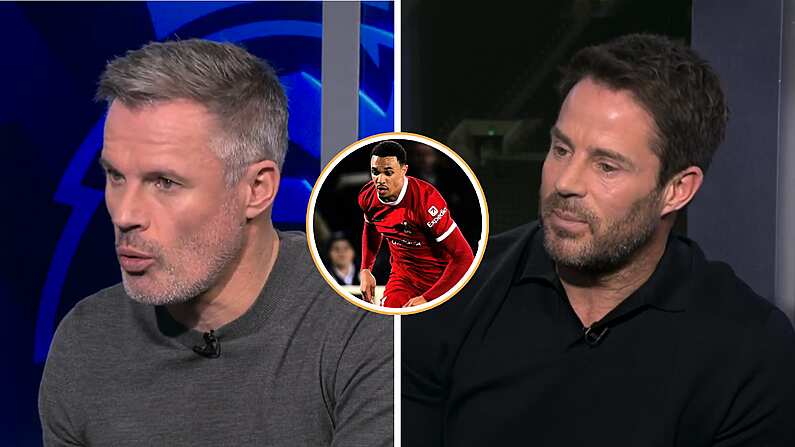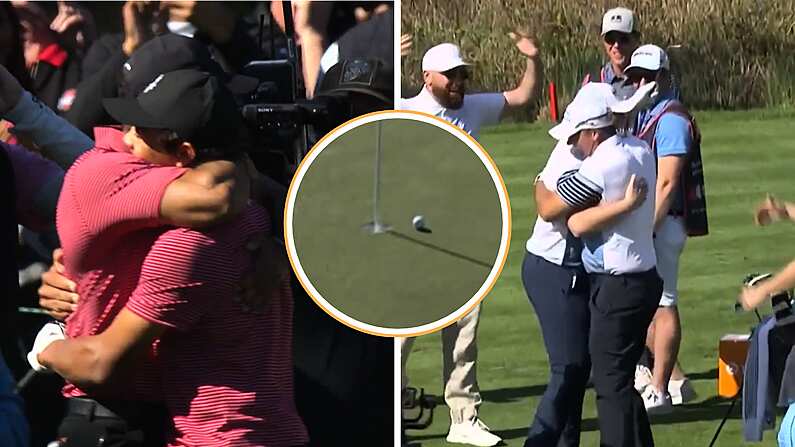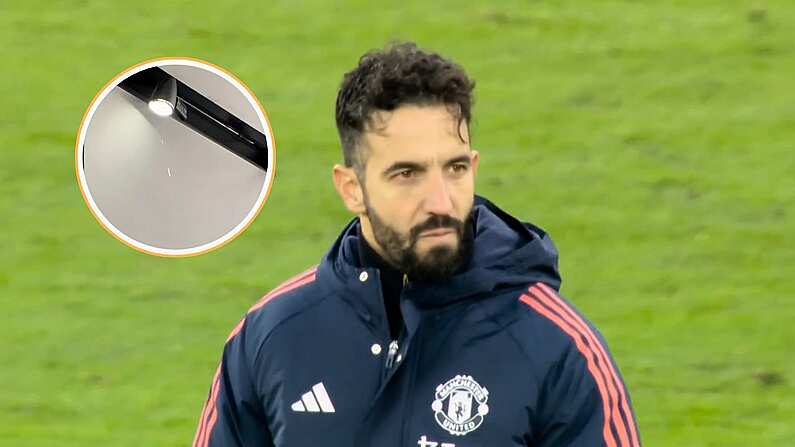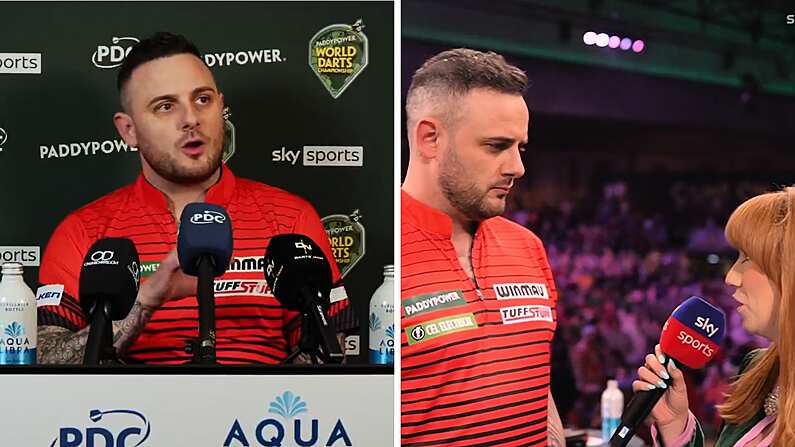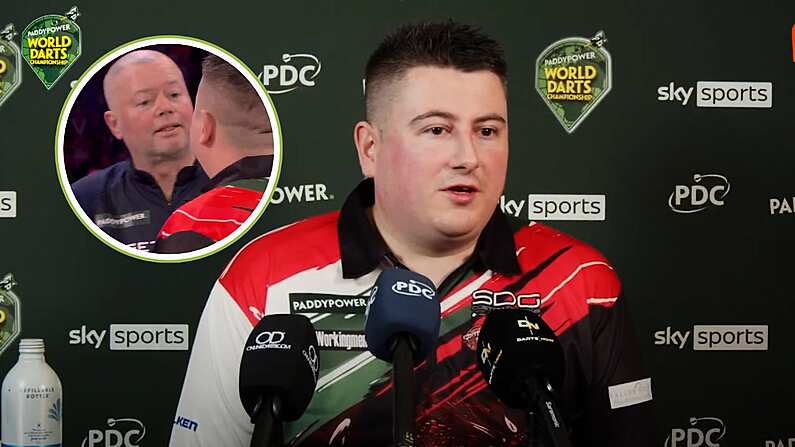As we approach the 30th edition of WWE WrestleMania in April, I intend to look back over the previous two ten-year anniversaries of the 'Grand-Daddy of 'Em All' and see how they shaped the history of WWE as it is today. Although we obviously can't gauge yet what the ramifications of this year's event will be, we were recently afforded a glimpse into how WWE envisions its future playing out. And though the countdown clock may still be ticking down for weeks, that vision in fact begins this Sunday.
Just days after WWE celebrated its past with (an at-times disappointing, at-times exhilarating) 'Old School Raw', they announced the biggest shift in their business plan since perhaps the birth of WrestleMania and pro-wrestling on PPV. The WWE Network is due to launch in the States in February (with a late-2014/early-2015 launch promised over here), with all WWE pay-per view extravaganzas inclusive; alongside all entire, uncensored PPVs of the past; pre- and post-game shows for their weekly TV broadcasts (which will continue to be aired by their current providers - meaning Sky will likely renew their contract for Raw, SmackDown etc), and original, reality-based content like 'Legends House', all for the reasonable sum of $9.99 per month (with a 6-month commitment).
The idea is not only a hardcore wrestling fan's wet dream, it's a massive risk to WWE's current business model and perhaps Vince McMahon's final revolution of his sports-entertainment kingdom.
In offering monthly PPVs inclusive in the monthly subscription fee for the online Network, Vince is putting a lot of his eggs in one basket and essentially betting the house on the decline of pay-per view as a model for selling big fights. Despite declining buyrates for his own product, the move bucks trends for the likes of boxing and UFC, who've broken buyrate records in recent years for large scale fights.
WWE currently rely heavily on the income from their pay-per view events. Put simply, it's not the global behemoth we all know it to be without people paying. Without WrestleMania pushing 1 million buys per annum, we don't have the extravaganza held in stadiums and Superdomes, we don't have dream matches involving legends who command a hefty price, we don't have amazing, throwaway cameos from the likes of Living Colour (who sang CM Punk to the ring last year unannounced), we don't have WWE as we know it in 2013.
Here's the bad news: WWE need to target 1-2 million subscribers annually for this project to be considered a success. Their flagship show, Raw, averages 3 million viewers weekly. That means that they need to convert around half of their weekly fanbase to profit on their current situation, and all of their traditional WrestleMania customers to just break even. That number is made all the more daunting by the fact that less than 35 per cent of households in the US currently subscribe to any kind of on-demand subscription service (Netflix being the most popular in the field by a distance).
Going by those averages, though, WWE just hits their 1 million subscribers target, so when you consider that the price over 6 months is the same price as ordering WrestleMania currently (launching the Network just in time for WM30 has been spun as a great offer for fans, and it is, but the reality is that WWE also need that WrestleMania market to give it the kick-start it needs)...you can see why Vince thought the risk was worth it. Especially as the online, on-demand market continues to grow. It's just not a sure thing, by any means. The numbers, at their most optimistic, make this an educated gamble. But then again, the same could've been said about trying to attack the American Football market with an alternative league during the NFL's off-season (#RIPXFL is now trending worldwide on Twitter).
Where do WWE go if this gamble falls the way of the likes of the XFL? That's the thing, they don't really have a move. In the modern era, people don't mind paying a little for a lot. But they won't tolerate being asked to shell out $59.95 for a WrestleMania again having had it and five more pay-per views for that price with the Network.
That's always been Vince's way, though. He's an all-or-nothing type of businessman, who can keep the world on its toes in press conferences as much as when he's yelling "YOOOOUU'REE FIRRREEED!!!" to a hapless character in the ring under his Mr McMahon moniker. Not content in the 80's to be just another fish swimming in the pond, he attacked wrestling's various territories in North America and became the biggest shark in a much smaller pond. When the steroid scandal ripped asunder the image of muscular superheroes he had trained the world to view as pro-wrestlers, he shifted to smaller, more technical champions like Bret Hart and Shawn Michaels. When WCW began to dominate him in the ratings war by stealing all of his biggest stars, he screwed his biggest star on live pay-per view and burned all bridges with him, opting instead to build around guys who were discarded as in-ring mechanics in WCW, like Steve Austin, Mick Foley and Mark Callaway (The Undertaker). And when he had ascended to the top of the world in pro-wrestling with any competition too far back to ever legitimately compete, he's now opted to roll the dice on the whole operation instead of sitting cosy at the top, counting cheques and leaving the future to the next generation.
The Network isn't Vince's only vision for the future, though. It's just his biggest. What's been much less reported is a recent shift in attitude, a hunch, that could similarly shake wrestling to its core: a belief that the idea of babyfaces and heels are a thing of the past in pro-wrestling.
This is something that I wrote about way back in 2012, so you'll find far less question marks surrounding this bold idea here.
Vince's hunch is based upon the rise of morally ambiguous dramas like Breaking Bad, Mad Men and The Sopranos revolutionising the television world. Gone are the days when a great drama involved a cool good guy chasing an evil bad guy in the name of all that is right. Viewers these days identify with realistic characters making realistic life decisions with good and bad consequences on both sides, witnessing the fallout of these consequences then going on said journey with that characters while always being allowed to make up our own minds on their degree of righteousness.
"Well if it works for Breaking Bad," you may ask, "Why wouldn't it work for wrestling?"
That's because it pretty much flies in the face of everything people consider pro-wrestling to be.
Despite the Internet exposing pretty much all that there is to be about pro-wrestling, many fans still aren't fully clued into what exactly the term 'ring psychology' means, as it pertains to pro-wrestling. It's actually pretty simple: two men step into the ring - a bad guy and a good guy. In the early going, the good guy shows he is the better athlete (because he's morally infallible, you see) until the bad guy cheats to get the edge. The bad guy then beats down on the good guy, who'll intermittently attempt a comeback (hope spot), only to be felled by the bad guy's seemingly endless resources of evil trickery. Eventually the good guy will get an opening and fight back. This eventually leads us to our closing stage of a match where the good guy either wins cleanly or the bad guy cheats to victory. Basically think of any fight in a Rocky movie and you've got the idea.
Of course there are exceptions to the rule, but typically this is how 95% of wrestling matches transpire (apologies if I've spoiled watching wrestling for you now...you'll get used to it over time, just check Twitter until the comeback). It happens this way because the audience, and their belief that they can influence proceedings, is integral to the in-ring product and this format generally brings about the right amount of rollercoaster ride of boos and cheers that make it entertaining.
So strip wrestling of that necessity to establish clear good and bad guys, and what do you have left?
Stone Cold Steve Austin says that WWE needs to go back to his roots and let the stars develop naturally, without a script, to thrive again. Jim Cornette believes that wrestling's death knell came when the cat was let out of the bag and became sports entertainment, instead of a legitimate fight. But, while they are two of wrestling's finest ever minds who both deserve instant credibility when weighing in with their opinions, I'm sure Ric Flair and Dusty Rhodes thought Vince was making a massive mistake in the 80's when he made wrestling a national (and later international) product instead of a territorial one. Now he signs both of their paycheques.
Vince has always been the one looking ahead, not back. So surely he's onto something if he's willing to admit this hunch publicly, right? Even if it does sound insane at face value.
Cue Daniel Bryan, the man who is garnering the strongest crowd reactions seen in WWE since Austin and The Rock were in their prime in the late 90's. Yet WWE saw this outpouring of affection heading Bryan's way, and what did they do? They made him a bad guy, teaming him with The Wyatt Family after several months of their heated rivalry.
Allow me to digress from my digression for a quick story, I promise it'll all make sense in the end: as some of you may know, I run WWE Parties Ireland, where we host large scale parties for big WWE pay-per views (next step: The Royal Rumble this Sunday in Woolshed Baa & Grill, Dublin). We also run pre-show entertainment to get fans in good spirits leading up to the PPVs.
During our first party for WrestleMania 28, my instinct was to do what I had done the last time I had performed for pro-wrestling fans for nearly 5 years on the local independent circuit: to put on a show for them. I did a DJ set, we had classic matches, live music, the works. Yet, while it went well, I knew we still hadn't hit that sweet spot. That happened during our second party, later that year for SummerSlam. There we ran giveaways for WWE merchandise in exchange for fans coming up and doing a bunch of fun, wrestling-related hijinx, like this. Sure enough, the idea went over fantastically and I knew we were onto something.
That's when it hit me: in the 21st century, wrestling fans are the stars of the show, not those who perform for them. They are merely conduits who act out the fans' will, like performing monkeys.
Think about it, what was voted WWE's 'Moment of the Year' in 2013 for Balls.ie's year-end awards? Dolph Ziggler cashing in his Money In The Bank Contract. Why? Because of the insane fan reaction! Less than a year later, Ziggler's career appeared to be briefly in jeopardy after suffering his second serious concussion within 12 months, and not that fans didn't care, but their spirit wasn't dampened in much the same way as, say, it had been when Steve Austin left for a year in 1999 after breaking his neck. Whereas once it had been a case of mega-stars becoming box office draws and inspiring that kind of reaction, these days anyone can. WWE just needs to supply fans with the right set of circumstances to give a moment that unforgettable feel.
Which brings us back to Daniel Bryan and Vince McMahon's wish to rid the world of babyfaces and heels. Technically, Daniel Bryan was now being portrayed as a heel as a part of The Wyatt Family. Did that stop fans from chanting his name? Of course not! If anything, they now chanted it louder. Even if WWE had genuine intentions of running with this storyline over the long-term, fans simply weren't going to allow them to do so. They had shown as much by cheering his name on a 10-minute loop as Triple H tried to sell them on the first John Cena/Randy Orton WWE World Title Match a month previously. Daniel Bryan had been anointed the saviour of the masses and people power wasn't going to conform to that BS, old school notion of booing him because WWE said they had to.
Fans may have been balking at the idea of heels being a thing of the past on message boards, but little did they realise they were actually stealthily consuming it at the same time.
That, of course, all led to this on last week's edition of Raw..
Was this a giant coincidence? Was it a case of WWE simply buckling to the will of the masses?
This was all clearly a part of the plan from the outset (note Bryan losing his first tag-team match with the Wyatts - if it'd been a long-term deal they most certainly would've won - and the prolonged gap between WWE TLC and Royal Rumble to allow long-form storylines like this to play out as evidence). WWE knew that their traditional lines of black and white had been usurped in favour of shades of grey writing, so they played upon that to make the story stronger. The fans are the stars, but Vince is still the puppet-master.
Wrestling can work without clear-cut heels and babyfaces because fans will choose their own heroes and villains anyway. WWE are now just embracing what's been blatantly obvious since John Cena was booed out of the building as the intented heroic babyface against Triple H at WrestleMania 23.
What was the Daniel Bryan saga, then, if not a case of WWE buckling to the will of the masses?
It was a glimpse at the future.
WWE is evolving right now, every week, right in front of our eyes. Both as a product (with storylines like Bryan's) and as a business (with the WWE Network). The 30th anniversary of WrestleMania will ring in a new dawn for professional wrestling as the pay-per view era slowly fades into mere memory.
The real truth is, though, that that era begins this Sunday. Because on Sunday, with only one unified WWE World Heavyweight Champion, the winner of the Royal Rumble match now becomes absolutely pivotal. With WrestleMania required to do the heavy-lifting for a some-say impossible target of subscribers in year one of the Network, whoever fights for the title will be expected to carry that load.
We've heard it many times before (think Survivor Series 2001, the Nexus feud etc), but unless you were alive to witness Hulk Hogan vs Andre the Giant fight at WrestleMania III, then it's possible that no matter how many years you've followed WWE you've never witnessed a match with as legitimately high stakes as this.
This Sunday, the winner of the Royal Rumble match will carry the future of professional wrestling on their shoulders. And remember, failure is not an option.
WWE Royal Rumble - Rick's Quick Picks
BROCK LESNAR to win 30-man Royal Rumble Match
WWE World Champion, RANDY ORTON over JOHN CENA to retain
BIG SHOW over BROCK LESNAR by disqualification
DANIEL BRYAN over BRAY WYATT
WWE Tag-Team Champions, CODY RHODES & GOLDUST over NEW AGE OUTLAWS
Rick Nash is a former professional wrestler who currently runs WWE Parties Ireland (hosting large scale events for big WWE pay-per views in Dublin). He's also a DJ and terrible sports gambler, so feel free to share any WWE thoughts or sports tips with him on Twitter.


